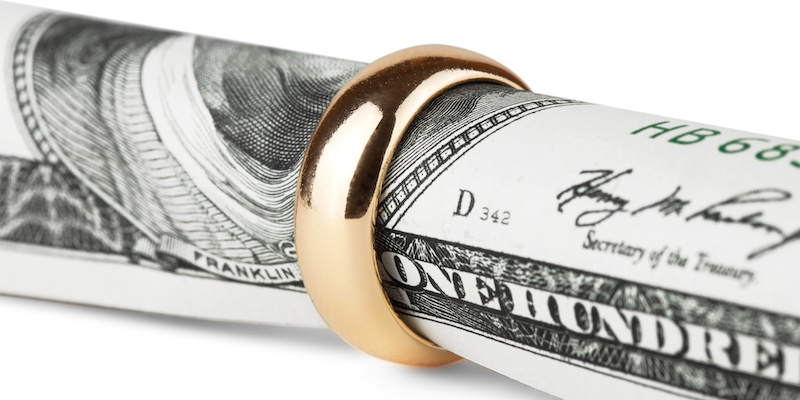In our previous post we set out some of the key economic principles to consider when valuing different assets during divorce to determine whether all assets are created equal. In this post, we will walk through how these principles affect typical choices in a divorce.
The asset most spouses fight over tends to be the marital home, not only for sentimental reasons but also because of its value. Let’s assume a house has net equity of $100,000, and that a spouse can either keep the house and pay the other spouse $50,000 in cash or in trade through another asset. How do we know this would be a good trade?
First, we have to think about the present value of the home. The house in this sense is an asset on paper only; in reality, it is a place to live that comes with a cost (a mortgage, plus taxes and insurance), additional costs (upkeep and maintenance) and marginal benefits (residence, tax benefits for mortgage interest deduction). So, while today the house may be worth $100,000, you have to be able to make all of the payments associated with owning this asset. Also, the actual value of the home in the future is not simply the future sale price – it is that price minus all monies spent to make the house sellable, including additions or renovations, and less the rate of inflation and less capital gains taxes and commission at sale. Unless the house will grow in excess of the rate of inflation but estimated annual maintenance costs, the house will actually lose money. Most spouses when thinking about keeping the house do not think about the house in these economic terms, and often regret it later that they did not factor in its actual present value.
Second, what is the present value of the other asset? If it is cash, $50,000 is very valuable as an asset, as you can receive it tax free and do with it what you please – spend it, invest it, or a combination of both. If it is an investment such as stocks or an IRA, the present value is the asset less the tax consequences of liquidating immediately. So, it may seem cash is preferable to the investment. But that depends on the type of investment and when you intend to use it. If the $50,000 represents a portion of an IRA, you will not have any tax consequences from a rollover, but you will have tax consequences when you begin receiving benefits. If you wait 20 years to begin receiving benefits, it is likely the growth in the gross value of the asset will exceed losses due to inflation and taxes; however, if you wait only 5 years to begin receiving benefits, you probably will suffer a net loss.
Third, what is the opportunity cost involved? If you give up the house, you need to find another residence. How much will that cost? Will it be where you want to reside? Subjectively how important is it to stay in the marital residence? If you give up the cash, what would you have done with that cash – invest or pay off debt? If you give up a retirement fund, how much would you truly lose based on when you would begin receiving benefits? These calculations are case dependent but very quantifiable, and you can determine whether giving up the house or giving up the investment makes better sense.
The bottom line is that all assets are not created equal because of present value, taxes, opportunity costs and utilization. Only when you evaluate the choices of assets in this full extent can you truly determine what you stand to gain or lose by a given choice.
If you have questions about asset valuation and divorce, contact us – we can help.
